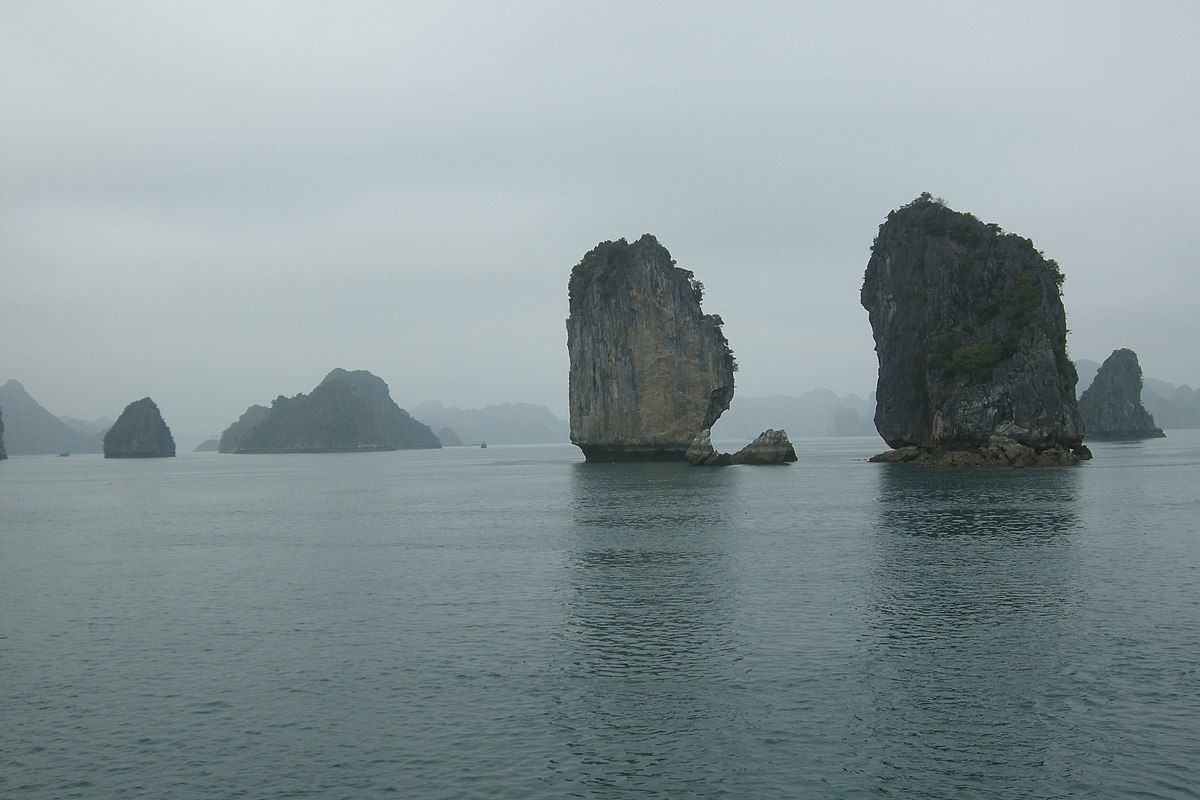Report: Vietnam's 'Kissing Rocks' at Risk of Collapse
According to a study published by Vietnam's Institute of Geosciences and Mineral Resources (IGMR), Trong Mai Islet — otherwise known as the "kissing rocks" in Vietnam's Ha Long Bay — is on the verge of collapse due to rising seawater levels, tidal forces, tourism, and other factors.

Facts
- According to a study published by Vietnam's Institute of Geosciences and Mineral Resources (IGMR), Trong Mai Islet — otherwise known as the "kissing rocks" in Vietnam's Ha Long Bay — is on the verge of collapse due to rising seawater levels, tidal forces, tourism, and other factors.1
- Ho Tien Chung, head of tectonics and geomorphology at the Institute, has warned that visible cracks in the kissing rocks alongside the islet's vulnerability during low tide may prompt a collapse without protective actions.2
- The study found that, in tandem with rising sea levels and geological and tectonic movements, illegal fishing and unregulated tourism were speeding up the erosion of the twin rocks.3
- To avoid erosion at the bottom of the surface, researchers suggest avoiding fishing around the rocks and inserting cement in the islet to shore up its foundations.4
- Although tourists are not permitted to approach the 13.9m (45.5 ft) tall chicken-shaped rocks, the speed of boats passing through continues to erode its base.5
- To counteract the effects, the province of Quang Ninh's Department of Transport announced on Tuesday that tourist boats will not be allowed to go over 10 km/hr (6 mph), and must keep a distance of at least 70m (229 feet) when passing the islets.6
Sources: 1The Star, 2VnExpress International, 3Asia News Network, 4BBC News, 5The Straits Times, and 6Vietnam Posts English.
Narratives
- Narrative A, as provided by Mekong Eye. Vietnam's heritage sites face severe erosion from human visitors, affecting communities and national treasures. "Quality over quantity" in Vietnam's tourism sector is essential to environmental protection. The Southeast Asian nation must step up to better manage tourism or else other environmental and cultural treasures will also suffer.
- Narrative B, as provided by Gulf News. Vietnam's environmental issues go beyond mere tourism — a major root cause is global warming causing rising sea levels and threatening local populations. Countries such as Vietnam are in danger of disappearing unless global initiatives are implemented. Preserving environmental monuments requires facing up to the climate challenge first.






